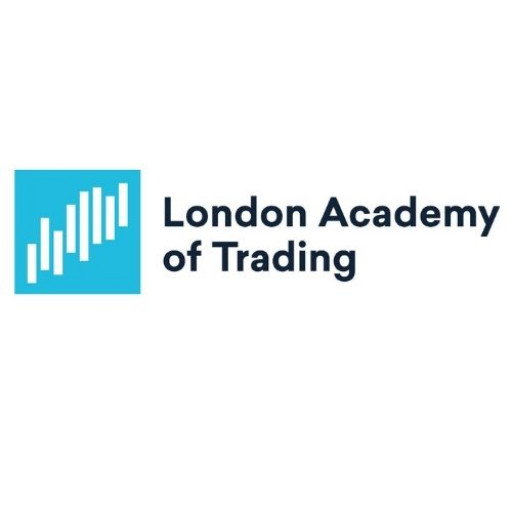Introduction to Financial Markets and Trading at the London Academy of Trading offers a comprehensive overview of the fundamental concepts, tools, and techniques used in the world of finance and trading. Designed for aspiring traders, students, and finance enthusiasts, this program provides essential knowledge to understand how financial markets operate, including the mechanisms of major asset classes such as equities, forex, commodities, and derivatives. Participants will learn about market participants, trading platforms, and the regulatory environment that governs trading activities globally. The course covers technical and fundamental analysis methods, enabling students to develop effective trading strategies and make informed decisions. Interactive sessions, practical exercises, and real-world case studies ensure that learners gain hands-on experience in analyzing market trends and managing trading risks. The curriculum also emphasizes the importance of discipline, psychological resilience, and risk management techniques crucial for success in trading. With experienced instructors and industry experts, students will explore modern trading tools, charting software, and trading platforms used by professionals. Throughout the program, there is a focus on ethics, compliance, and the role of technology in shaping the future of financial markets. Whether you are a beginner looking to build foundational knowledge or an aspiring trader aiming to enhance your skills, this introduction provides a solid gateway into the dynamic world of financial markets and trading. The program prepares participants not only to understand market dynamics but also to develop their trading approach informed by current industry practices and insights, equipping them for further studies or entry-level roles in finance.
Introduction to Financial Markets and Trading at the London Academy of Trading offers a comprehensive overview of the fundamental concepts, tools, and techniques used in the financial trading industry. This program is designed for individuals who are interested in understanding the dynamics of financial markets, including stocks, bonds, commodities, currencies, and derivatives. Participants will gain insights into how financial instruments are traded, the functioning of different markets, and the factors that influence price movements. The course covers essential topics such as technical and fundamental analysis, trading strategies, risk management, and the use of trading platforms. Throughout the program, students will learn about market structures, trading psychology, and the role of regulators to develop a well-rounded understanding of the trading environment.
The curriculum emphasizes practical skills through simulated trading exercises, case studies, and real-world examples. Students will learn to interpret market data, develop trading plans, and execute trades confidently. The program also explores the technology behind modern trading, including algorithmic trading and the role of trading software. By the end of the course, participants will have a solid foundation in financial markets and be prepared to pursue further studies or careers in trading, investment management, or related fields. The program is suitable for beginners with no prior experience as well as those looking to refresh their knowledge. The training is delivered by industry professionals and experienced traders who provide valuable insights and mentorship. Overall, the Introduction to Financial Markets and Trading program aims to equip students with the knowledge, skills, and confidence necessary to navigate the complex world of financial trading successfully.
Program requirements for Introduction to Financial Markets and Trading at the London Academy of Trading typically include a combination of academic prerequisites, professional background, and language proficiency. Applicants are generally expected to possess a basic understanding of financial concepts and previous education in related fields such as finance, economics, or business studies. While specific academic requirements may vary, candidates with a completed secondary education or equivalent are often eligible to apply.
Proficiency in English is a key requirement, and applicants might be asked to provide evidence of language skills through standardized tests like IELTS or TOEFL if their first language is not English. Work experience in financial markets is not strictly necessary, but relevant experience could be advantageous during the application process. The programme is designed to be accessible to those new to trading and finance, so no advanced qualifications are mandatory. However, a strong interest in financial markets, analytical thinking, and motivation to learn are highly valued qualities for applicants.
Additionally, online applications usually require submission of a completed application form, a personal statement explaining the applicant’s interest and goals related to trading and finances, and a current CV or resume outlining educational background and any relevant experience. Some programmes at the London Academy of Trading might also require prospective students to attend an interview or complete an introductory assessment to evaluate their suitability and motivation for the course.
There are generally no formal age restrictions, but applicants are expected to have reached the minimum age of 18 at the time of admission. Financially, applicants should be prepared to pay the tuition fee for the course, which varies depending on the specific programme package selected. Students are advised to carefully review the course prerequisites and admission criteria listed on the official London Academy of Trading website prior to application to ensure all requirements are met and to facilitate a smooth admission process.
Finance studies within the Introduction to Financial Markets and Trading program at the London Academy of Trading encompass a comprehensive overview of the fundamental principles underpinning financial markets. The curriculum is designed to equip students with a robust understanding of how financial instruments such as stocks, bonds, derivatives, and commodities are traded, valued, and managed. The programme emphasizes the importance of financial analysis, risk management, and trading strategies, ensuring participants develop practical skills alongside theoretical knowledge. Students learn about market structures, trading platforms, and the roles of various financial institutions, gaining insight into the functioning of global financial markets. The coursework often includes quantitative methods, technical and fundamental analysis, and the application of trading psychology.
The programme aims to develop analytical thinking and decision-making skills critical for success as a trader or financial analyst. Throughout the studies, learners explore regulatory environments, compliance standards, and ethical considerations in trading practices. The course may also cover topics related to the use of financial software and trading platforms, enabling students to perform real-time analysis and execute trades effectively. The instructional approach often combines lectures, practical trading simulations, and case studies to bridge theory and practice.
In terms of career preparation, the programme provides a solid foundation for roles such as financial analyst, trader, investment analyst, or risk manager. Participants are trained to interpret financial data accurately, formulate trading strategies, and manage investment portfolios with confidence. The theoretical modules are complemented by hands-on trading exercises that simulate live market conditions, fostering a practical understanding of market dynamics. Participants also learn about the impact of economic news, geopolitical events, and macroeconomic indicators on market behavior. Overall, the finance studies component of the programme aims to produce knowledgeable, skilled, and ethically responsible financial professionals capable of navigating the complexities of modern financial markets.
The Introduction to Financial Markets and Trading program at the London Academy of Trading provides students with a comprehensive overview of the financial trading landscape. The course is designed to equip learners with foundational knowledge of financial markets, including the various asset classes such as equities, commodities, forex, and derivatives. Participants gain insights into how financial markets operate, the role of different market participants, and the tools used for trading and analysis. The program emphasizes practical skills, including technical and fundamental analysis, risk management, and trading psychology, enabling students to develop a well-rounded understanding of trading strategies. Taught by experienced industry professionals, the course combines theoretical concepts with hands-on exercises, including live trading simulations and case studies. Students learn about market structures, trading platforms, and the regulatory environment, essential for navigating the complexities of financial markets. The program also covers the importance of disciplined trading and the psychological aspects that influence trading decisions. Designed for beginners and those seeking to enhance their knowledge, the course offers a valuable foundation for pursuing further education or a career in trading and finance. The London Academy of Trading prioritizes practical learning and industry relevance, preparing students to understand market dynamics and potentially start trading with confidence. This program is ideal for individuals interested in entering the financial sector, traders looking to refresh their knowledge, or investors seeking to understand the mechanics behind their trades. The course is delivered through a combination of online and on-campus sessions, providing flexibility for participants based on their schedules. Upon completion, students receive a certificate of achievement that recognizes their understanding of core trading principles and financial market functioning. The introduction course serves as a stepping stone for more advanced studies and professional development within the field of financial trading.






